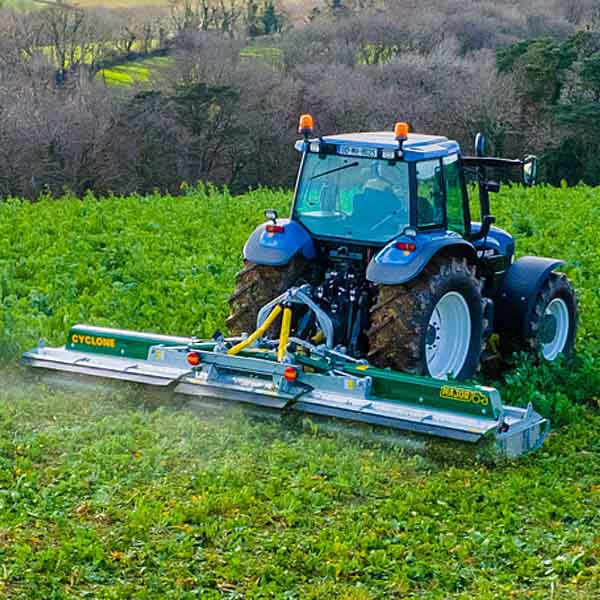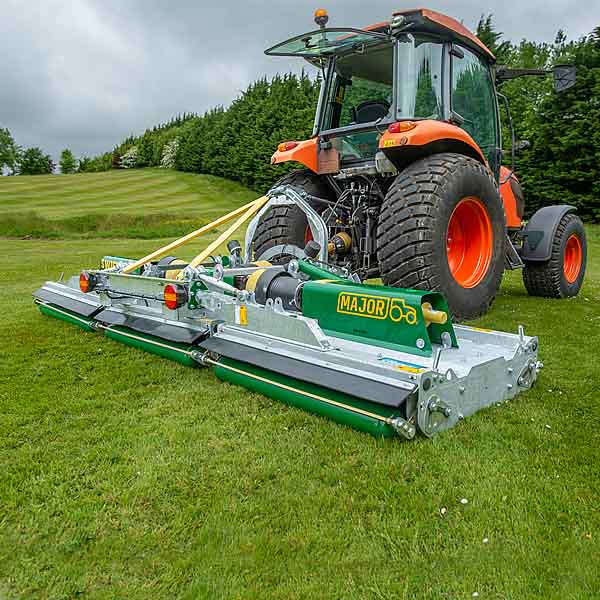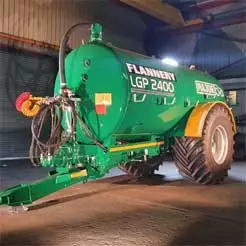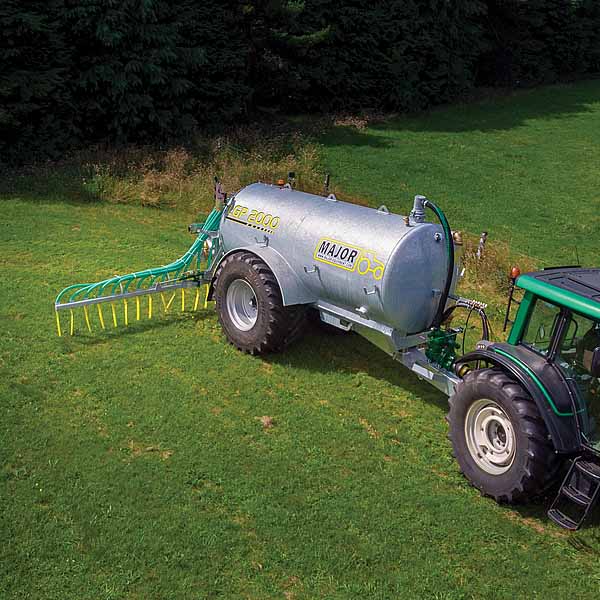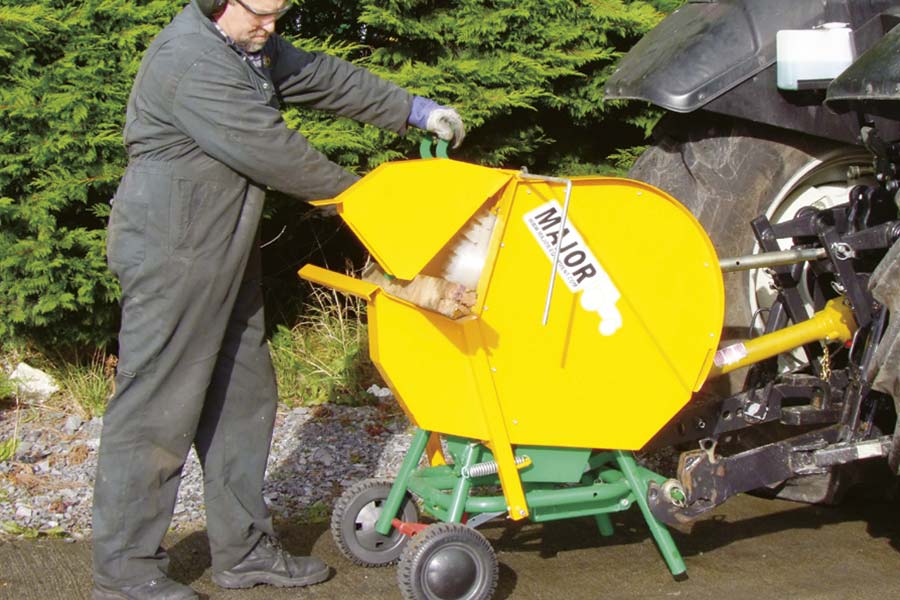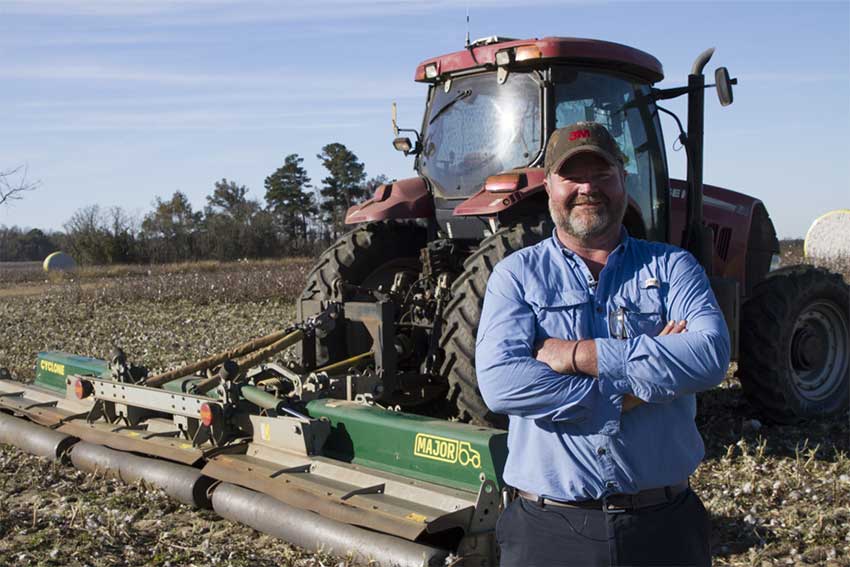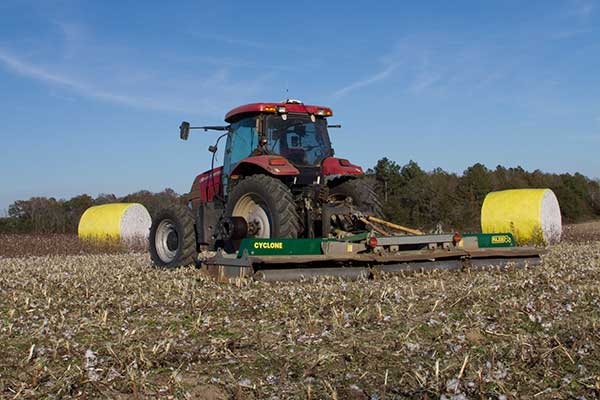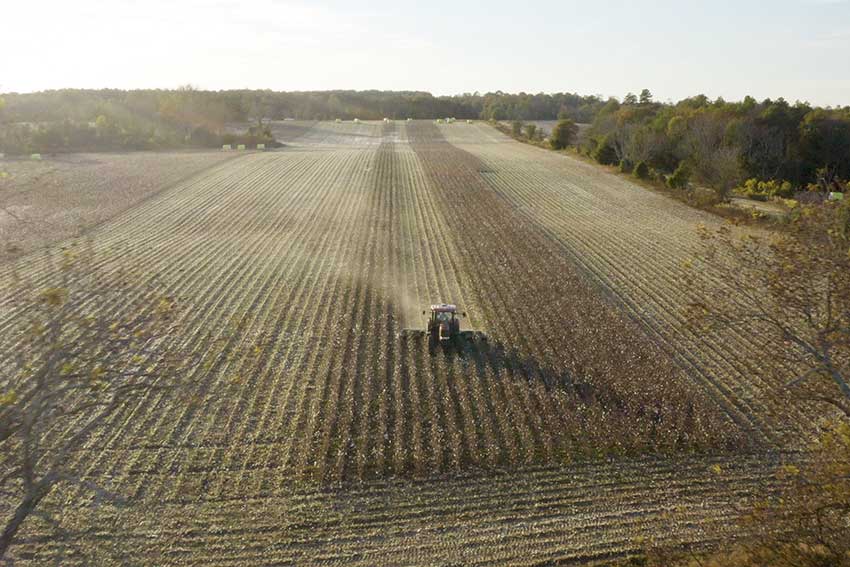New 20-ft Cyclone Shredder returning dividends in the heart of Georgia cotton country
Central Georgia farmer Clegg Griggs admits he obsesses over everything, especially about making efficiencies on his 2,000-acre holding in Dooly County.
“We farm on a landscape of small rolling hills with very little flat ground across our geography,” says Griggs. “I deal with terraces, waterways, and washes. I move dirt every year to prepare my fields for planting and to make sure I can get my equipment into each field.”
Because of the rolling terrain, standing water is rarely a problem. What is a problem, however, is trying to prevent erosion. Griggs’ father installed drain tile in the early 70s to fight the problem and Clegg has added to it, but when he started using a cover crop and stopped turning over dirt, things changed for the better. Now after he terminates his wheat or rye cover crop before planting, he uses a strip till rig to open the top part of the rows where seeds are dropped.
It’s made a big difference,” says Griggs. “That cover holds moisture as well as the nutrients I apply. The efficiency of my nutrient program has improved tremendously.”
Reducing Labor and Investing in Quality Machinery
At one time, Griggs Family Farm relied on Clegg’s father and mother, Clegg’s wife Aimee and four laborers, to get the cotton crop in the ground and harvested each fall. After going from 8-row to 12-row equipment on his 38-inch row spacing fields, he was able to manage the entire operation by himself and one reliable farmhand. He admits, it was one of the smartest moves he’s ever made – other than marrying Aimee.
When asked what he does to reduce input costs and save money, he’s quick to answer.
“I need reliability from all of my equipment. Any farmer will testify that downtime caused by equipment failure is a huge efficiency killer. I keep my tractors as long as possible, but I like to upgrade my sprayer and harvesters when it’s economically feasible,” says Griggs. “That knocks off some of the economics on the front end. I like to have the latest technology and software on my equipment whenever possible. My father taught me how to trade equipment and is still works for the economics of our farm even today.”
New Shredder Leaves Immaculate Cut on Cotton Residue and Orchard Floor
When his last six rows of cotton are harvested, Griggs will begin shredding stalks and, when time permits, he’ll pull all his stalks as well.
“We have always used rotary cutters and flail machines, which were very inefficient and burned fuel like crazy. Then I found a mower that really caught my eye – the Cyclone,” says Griggs. “I demoed one through Lasseter Tractor Company, Inc. I was initially just going to use it to shred stalks but for the heck of it, I pulled it into my pecan orchard and was blown away at how well it cut grass.”
Griggs likes having the link adjuster bar on the Cyclone MJ30-630 shredder that prevents it from bending the wing too much. He also likes the way the machine handles the rolling terrain and terraces.
Attentive Manufacturer Support Complements Exceptional Product
“It does a great job on my cotton stalks, even when they’re a little green,” says Griggs. “I had a small issue with it getting a clean cut on one outside row, but Major Equipment stands behind their products and they worked with me to iron out the issue. They even provided me with new ‘experimental’ blades made specifically for cutting cotton stalks and they’ve worked well.”
Griggs admits the Cyclone’s cut is immaculate and it does an excellent job distributing the grass clippings, leaving no windrows. It has over 20-feet of working width and hydraulic wings that fold up to just over 9-feet for easy transporting from field to field.
“I also like it because it has a galvanized finish and every piece on it has a part number and can be replaced if needed,” says Griggs. “When it comes to equipment, that’s a cool feature. I’ve run it for three years now, have put it through its paces and it’s still going strong.”

